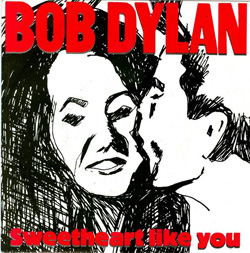 On the 23rd February, the AY and BA1’s regular Thursday seminar session was replaced with a plenary session on modern music and love, which was held in the lecture hall and coordinated by seminar leaders Brendan Boyle and David Hayes.
On the 23rd February, the AY and BA1’s regular Thursday seminar session was replaced with a plenary session on modern music and love, which was held in the lecture hall and coordinated by seminar leaders Brendan Boyle and David Hayes.
After we had spent the previous sessions on the Song of Songs and old Hispano-Arabic and Hebrew troubadour poetry, approaching modern love songs seemed to be the legitimate next step on our way to finding out what love might be.
As this session was a new concept, the preparations for it were quite extraordinary as well. Every AY and BA1 student had to find a modern song that represented love best in their opinion, and then send it in to a student who organized these into an anonymous list of songs, which was then passed on to the seminar leaders.
Over the course of a few days, seminar leaders were to choose two songs from this pool which we would then work with during the plenary session. As we were later to find out the options ranged – very interestingly — from Nina Simone to Flight of the Conchords; from 80’s glam rock to folk music. Finally, two songs were chosen for discussion in the plenary, namely All You Need Is Love by our beloved Beatles, and a more contemporary piece called LoveGame, a Lady Gaga song from 2008.
In addition to this, Brendan and David themselves brought two songs to contribute to the session, which turned out to be Lay, Lady, Lay by Bob Dylan and There’s A Moon Out Tonight by The Capris.
And with close to two hours and a room full of motivated students with print-outs of the above mentioned lyrics in their hands, the fun could begin. First, the people who had selected the various songs were asked to give a short presentation on the reasons for their choice before we all listened to the tunes as a group.
Starting off with Lady Gaga may have been a surprise to many, but was definitely a shock to a few, as the back rows enthusiastically joined in to sing along loudly. This was exactly what our discussion began with: we talked about how basically no one can get away with not knowing this song, and how it is directed to a certain audience and how it seems to have a deliberately impoverished understanding of love.
As David put it, it is more the idea of what naughty people might say than having any actual bearing on reality; singing lyrics about being “on a mission and it involves some heavy touching, yeah” and wanting to “take a ride on” someone’s “disco stick”. Especially after comparing this piece to the other ones we had chosen, we agreed that the very articulate, direct and honest manner in which LoveGame had been written takes away all the mystery of the experience of love, which puts it in a rather subordinate position compared to the other songs.
We then proceeded to talk about the Beatles song All You Need Is Love, and were quite surprised when we realised how difficult and intrinsically complex the verses actually are. There’s nothing you can do that can’t be done first gives an impression that you can achieve everything, but if you have a closer look at the sentence structure, you find out that it could mean the opposite, and that there are limits that you cannot break through.
We also found out that the you addressed throughout the song is different to the you addressed in the other songs, as it is a more general one and seems to be directed to the audience itself, while in the other songs the you is directed towards a particular beloved.
Finally, we listened to There’s A Moon Out Tonight, which is an example of the doo-wop tradition, and talked about how it differs from the other songs in the way words and sounds are used to express emotions. In comparison to the Bob Dylan song in particular, the semantics of The Capris’ song seem to be less important than the sounds they produce; they are subjected to a technique called melisma, which elongates vowel sounds to give the song a special feeling.
Having gone in this direction, we continued talking about the universality of vowel sounds. Everyone who sings along shares the feeling easily and is pulled into the music, because when you try to produce the vowel sounds they seem to take over your whole body.
All in all, this plenary session was a great success and also a welcome distraction, as it took place during our essay-writing period. I, personally, hope that ECLA will turn this into a tradition for the years to come. What more is there left to say at this point, than to remind each other that “all you need is love”, and—an interesting rearrangement of this sentence in the middle of the song, we found—“love is all you need”?
by Johanna Fürst (AY’12, Austria)
